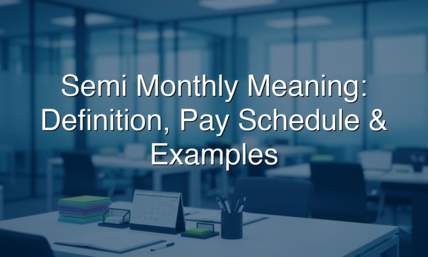How To Find Your Net Worth - The Full Guide
It’s always a great thing to know how much your net worth is. When it comes to very well-known figures, their net worth is often publicly listed on things like the Forbes rich list or on their Wikipedia page (both of which might not necessarily be correct though!).
In essence, your net worth is the financial amount calculated by the difference of your liabilities (what you owe and pay out) versus your total assets. Sounds easy to work out right? It might not be so simple.
Your net worth isn’t just how much money your account is telling you that you have. In similar fashion, your house or your car’s value isn’t just a case of a quick search engine research - there are multiple factors that determine what they sell for.
In this guide then, we’re going to explore what a net worth is and how it’s calculated - paired with some fantastic good-to-know tips about your net worth.
Also read: How to Have Multiple Streams of Income
What Exactly Does Net Worth Mean?
Many people will use net worth as a status symbol, or to explain how wealthy they are, but what it actually means is that figure calculated after working out what you have versus what you pay out.
This calculation method is similar to that of net profit or net pay that businesses or organizations will use to work out their earnings or spend. Net refers to the final figure after deducting things like taxes in these examples.
Net worth can be used as an important indicator of a nation’s wealth, which in turn, is important in global finance. The same applies when we’re assessing how wealthy a company or business is - the indicator will show how financially stable the country or company is.
It’s perhaps unsurprising that if the net worth of a person, company or country is increasing year on year, this is a good sign of financial strength - whereas if it reduces, particularly if it reduces massively, this suggests financial trouble.
When it comes to an individual, your outgoings and personal debt will be taken into consideration, along with your earnings and asset wealth. Typically, if your net worth reduces - it will be due to massive debts being incurred or a loss of earnings.
Also read: Make a Budget in Excel

Does Net Worth Even Matter?
It depends how you look at it really. For a country or company, it can mean massive differences. For a company, if their net worth declines year on year - it is unlikely they will be able to get new investors and their business might be in danger of collapse.
It will also mean that employees of that company might be at risk of losing their job, if the company has to cut costs - often through terminating employees through redundancies.
With a country, the government might decide to reduce their overall debt by implementing investment costs in the nation, causing problems in many areas like education or health.
Just having a positive figure as your net worth might not be enough to indicate a healthy financial situation either. If it is incredibly low in the black (positive), it might suggest that after selling all of your assets, you just about scraped paying all of your debts.
You do however, always want to be in the black - but steady increases year on year is where your financial health and strength will shine through.
Also read: What is the 50 30 20 Rule?
How Exactly Do I Understand Net Worth?
So, a positive net worth is the first important step but of course you’ll want this to increase. However, it’s the ratio that matters most. You don’t want your debts any higher than a figure of 40% of your overall assets.
Use this example - if your assets total a value of $150,000, your debt needs to be under $60,000 to be deemed healthy. Obviously, the less debt you have, the better - and therefore the figure will be much higher for your net worth and indicate a much healthier financial situation.
Having said this though, negative net worth isn’t a be all and end all of financial indication all of the time. Say, for example, you have recently graduated from college - you may have no savings and a student debt.
This doesn’t mean you’re in a poor financial position, you’ll just need to earn some money and over time, the net worth figure will climb.
Also read: How To Manage Personal Finances

How To Do Your Net Worth Calculation
This calculation can be done by yourself but you’ll need to remember to include everything. It might also be difficult to determine the worth of your home contents, so just make a rough estimate - but always do an undercalculation rather than overcalculating it.
The way to do this is in the following:
List All Of Your Assets
Before you do anything else, you’ll need to make a list of all of your assets and what you think they are worth. Start with the easiest and most obvious ones like the amount of money you have in your bank account, savings account and other financial accounts.
Include things like your stocks and bonds as to their worth (if you were to sell them now). Next, you’ll need to include any properties you own and vehicles you own. If you’re looking for a very accurate figure, you might want to get a valuation before you do your net worth analysis.
Remember to include the contents of your home that are worth the most and then estimate the lesser property. Total up the value of all of these things and write that figure down.
Also read: 12 Best Finance Podcasts For Your Savings
List All Of Your Debts
Your debts will include things like credit card debt, outstanding loan amounts, anything on credit that you are yet to pay for (the outstanding figure on those), your mortgage’s outstanding figure, any student loans or debts and anything else that you owe.
If you have signed a contract for something like your cell phone or a gym membership, you’ll need to calculate the remaining balance (the monthly amount by the amount of months that remain on the contract).
Total this figure and write it down.
Take The Debt Figure From The Asset Figure
If you’ve totalled up an asset figure of $300,000 and you’ve got a debt figure of $100,000 - the calculation would be $300,000 - $100,000 = $200,000.
That final figure is what your net worth is.
Things Commonly Missed In Calculation
What a lot of people miss out when they’re doing their net worth calculations are things like their 401k retirement plan, stocks, investments, jewelry, antiques and life insurance.
They have to be tallied up at the same time or you will not get an accurate figure - in fact, it might be off by thousands of dollars!
What If I Own A Business?
You don’t need to include any business figures into your net worth calculations. Think of them both as separate entities. However, the model of the business might determine that you have to include figures into your personal net worth calculations.
If for example, you are very close to your business or you have a small sole proprietorship - you are responsible for any debts that the business totals up. This means you will need to include the debts and assets of the business when you’re calculating your net worth.
When possible, it’s best to keep your personal assets and debts separate from your businesses assets and debts. It makes life easier and can prevent severe action being taken against you, if something catastrophic were to happen to the business!

Summary
Your net worth can be a great indicator into your own personal financial situation, and if you decide to do a net worth analysis every year, you can keep an eye on personal financial growth or decline.
If you notice a decline in your net worth, especially if it is big, you can take steps to change this for the next year - as long as you know where that money is going!
Our pay stub maker is a simple way to generate pay stubs online and it is very user friendly.















